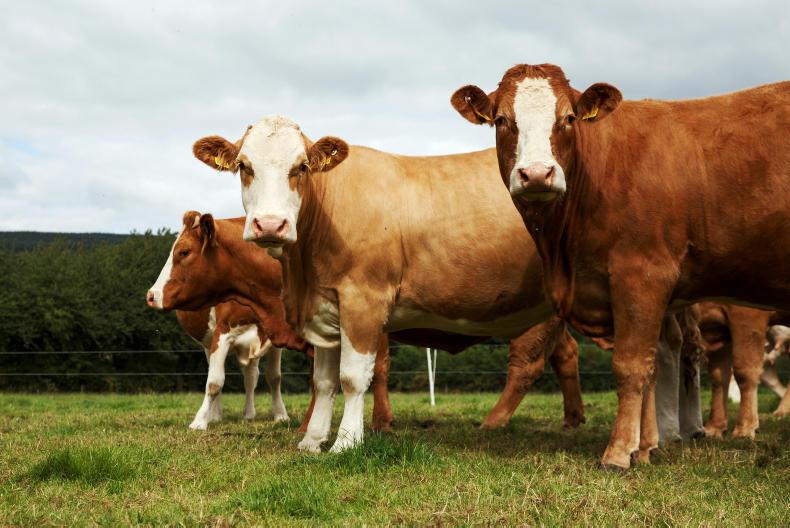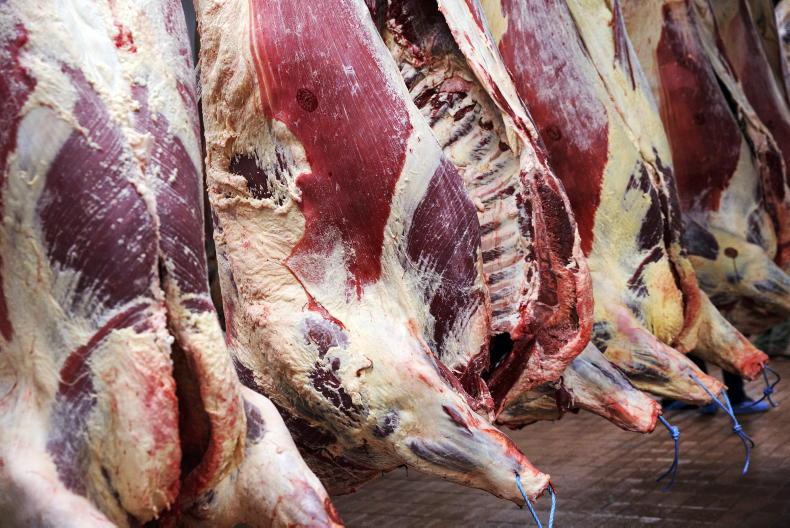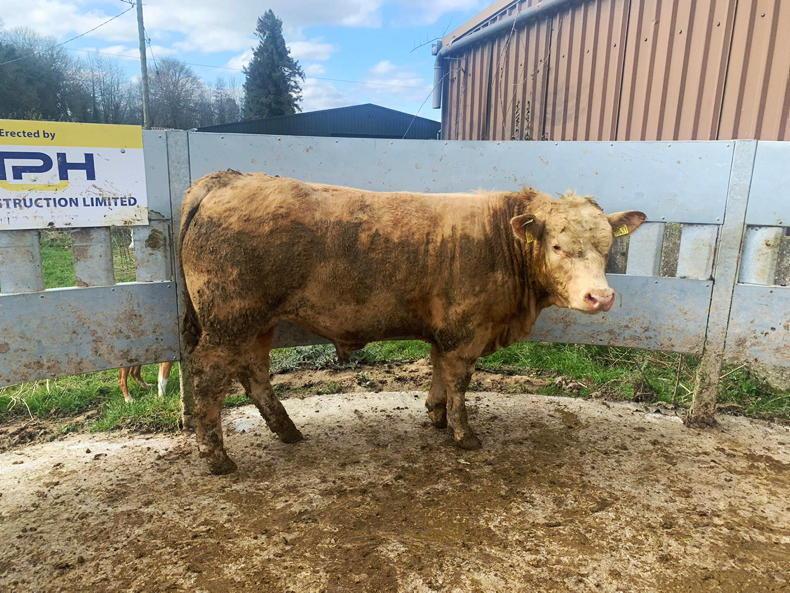Minister for Climate Action Eamon Ryan said that there will be less livestock in the country and the national “herd will be smaller” at the launch of the Government’s new Climate Action Bill on Wednesday.
The Climate Action and Low Carbon Development (Amendment) Bill 2020 will see all sectors of the economy, including agriculture, receive a five-year carbon budget. Each budget will have a ceiling for greenhouse gas emissions.
It won’t be possible to get zero emissions in agriculture that the country will be able to get in energy as there will always be a certain level of biogenic methane, Minister Ryan said.
We will have less animals, the herd will be smaller
As revealed by the Irish Farmers Journal last week, biogenic methane, methane from livestock, will be treated differently in the bill.
“[Agriculture] will not stay as it is, it will have to make a very significant contribution.
“By changing the way we do things, by tackling the biodiversity crisis as well as the carbon crisis, we can get a better form of farming and better payments to farmers.
“We will have less animals, the herd will be smaller, but if we get a better price that’s what the farmers are interested in, that they have an income, a better future,” he said.
Problems
Minister Ryan said the he thinks farmers realise that this bill is the solution to a “lot of our problems in agriculture”.
“This is the way we can give our young people a clear future, where we pay people for storing carbon in our land, where we pay for the restoration of biodiversity, where we reverse the tragic loss in pristine water quality.
It’s no longer farmers against the environment. It’s farmers with the environment
“In improving our water, air, soils, our biodiversity, we give farming a future which is sure, which they can be proud of, which they will be good at. That’s why I think this is a turning point. It’s no longer farmers against the environment. It’s farmers with the environment and foresters and fishermen and women.”
Taoiseach Micheál Martin said climate action is a key priority for Government.
“Collectively as a people, we must embrace this agenda and work tirelessly to protect and save our planet for future generations to live in,” he said.
An Tánaiste Leo Varadkar said agriculture has to make a significant contribution to a reduction in emissions.
“Biogenic methane is different and can't be reduced to zero. There is a natural limit to how much you can reduce.
“Certainly from a trade policy point of view, when it comes to this transformation and agriculture is going to have to transform,” he said.
Displacing production
Varadkar said that one thing Ireland has to be very careful about is that Ireland doesn’t just displace production from Europe to other parts of the world.

Tánaiste Leo Varadkar. \ Philip Doyle
“So we might reduce the production here in Ireland of beef for example only to increase it in Brazil. And that’s not good for the environment,” he said.
Varadkar said that trade deals such as the Mercosur deal need to be “climate proofed”.
Minister Ryan says he hopes to have the bill through the Dáil and Seanad by 15 December.
He said it will “take the guts of a year” to go through every sector of the economy to “allocate ambition”.
What does the bill mean for farmers?
The bill will enshrine a 2050 emissions reduction target into law, meaning Ireland will by law be required to be carbon neutral by 2050.
From next year, legally binding carbon budgets will be assigned to the agriculture sector.
There will be three carbon budgets from 2021 to 2025, from 2026 to 2030 and from 2031 to 2035.
It is not known yet what the emissions targets under farming will be, but Teagasc’s Marginal Abatement Cost Curve (MACC) is expected to be the main tool to base the agriculture carbon budget on.
You can read more on what the bill means for farmers here.
Reaction
IFA president Tim Cullinan said that while meeting the targets will be a challenge, farmers are ready to play their part.
“Farmers are already doing a lot and the sector has a roadmap set out as part of the Teagasc MACC curve.
We need to look at the net carbon position on farms
“With the right supports and incentives, farmers can continue to play our part in the national effort by improving the carbon efficiency of our output.
“However, one of the real frustrations for farmers is that they are getting no credit for the carbon they are sequestering on their farms. We need to look at the net carbon position on farms that takes into account carbon offset as well as carbon emitted,” he said.
Read more
New Zealand farms could be offsetting on-farm emissions by up to 118%
Climate action bill: what it means for farmers
Minister for Climate Action Eamon Ryan said that there will be less livestock in the country and the national “herd will be smaller” at the launch of the Government’s new Climate Action Bill on Wednesday.
The Climate Action and Low Carbon Development (Amendment) Bill 2020 will see all sectors of the economy, including agriculture, receive a five-year carbon budget. Each budget will have a ceiling for greenhouse gas emissions.
It won’t be possible to get zero emissions in agriculture that the country will be able to get in energy as there will always be a certain level of biogenic methane, Minister Ryan said.
We will have less animals, the herd will be smaller
As revealed by the Irish Farmers Journal last week, biogenic methane, methane from livestock, will be treated differently in the bill.
“[Agriculture] will not stay as it is, it will have to make a very significant contribution.
“By changing the way we do things, by tackling the biodiversity crisis as well as the carbon crisis, we can get a better form of farming and better payments to farmers.
“We will have less animals, the herd will be smaller, but if we get a better price that’s what the farmers are interested in, that they have an income, a better future,” he said.
Problems
Minister Ryan said the he thinks farmers realise that this bill is the solution to a “lot of our problems in agriculture”.
“This is the way we can give our young people a clear future, where we pay people for storing carbon in our land, where we pay for the restoration of biodiversity, where we reverse the tragic loss in pristine water quality.
It’s no longer farmers against the environment. It’s farmers with the environment
“In improving our water, air, soils, our biodiversity, we give farming a future which is sure, which they can be proud of, which they will be good at. That’s why I think this is a turning point. It’s no longer farmers against the environment. It’s farmers with the environment and foresters and fishermen and women.”
Taoiseach Micheál Martin said climate action is a key priority for Government.
“Collectively as a people, we must embrace this agenda and work tirelessly to protect and save our planet for future generations to live in,” he said.
An Tánaiste Leo Varadkar said agriculture has to make a significant contribution to a reduction in emissions.
“Biogenic methane is different and can't be reduced to zero. There is a natural limit to how much you can reduce.
“Certainly from a trade policy point of view, when it comes to this transformation and agriculture is going to have to transform,” he said.
Displacing production
Varadkar said that one thing Ireland has to be very careful about is that Ireland doesn’t just displace production from Europe to other parts of the world.

Tánaiste Leo Varadkar. \ Philip Doyle
“So we might reduce the production here in Ireland of beef for example only to increase it in Brazil. And that’s not good for the environment,” he said.
Varadkar said that trade deals such as the Mercosur deal need to be “climate proofed”.
Minister Ryan says he hopes to have the bill through the Dáil and Seanad by 15 December.
He said it will “take the guts of a year” to go through every sector of the economy to “allocate ambition”.
What does the bill mean for farmers?
The bill will enshrine a 2050 emissions reduction target into law, meaning Ireland will by law be required to be carbon neutral by 2050.
From next year, legally binding carbon budgets will be assigned to the agriculture sector.
There will be three carbon budgets from 2021 to 2025, from 2026 to 2030 and from 2031 to 2035.
It is not known yet what the emissions targets under farming will be, but Teagasc’s Marginal Abatement Cost Curve (MACC) is expected to be the main tool to base the agriculture carbon budget on.
You can read more on what the bill means for farmers here.
Reaction
IFA president Tim Cullinan said that while meeting the targets will be a challenge, farmers are ready to play their part.
“Farmers are already doing a lot and the sector has a roadmap set out as part of the Teagasc MACC curve.
We need to look at the net carbon position on farms
“With the right supports and incentives, farmers can continue to play our part in the national effort by improving the carbon efficiency of our output.
“However, one of the real frustrations for farmers is that they are getting no credit for the carbon they are sequestering on their farms. We need to look at the net carbon position on farms that takes into account carbon offset as well as carbon emitted,” he said.
Read more
New Zealand farms could be offsetting on-farm emissions by up to 118%
Climate action bill: what it means for farmers











SHARING OPTIONS